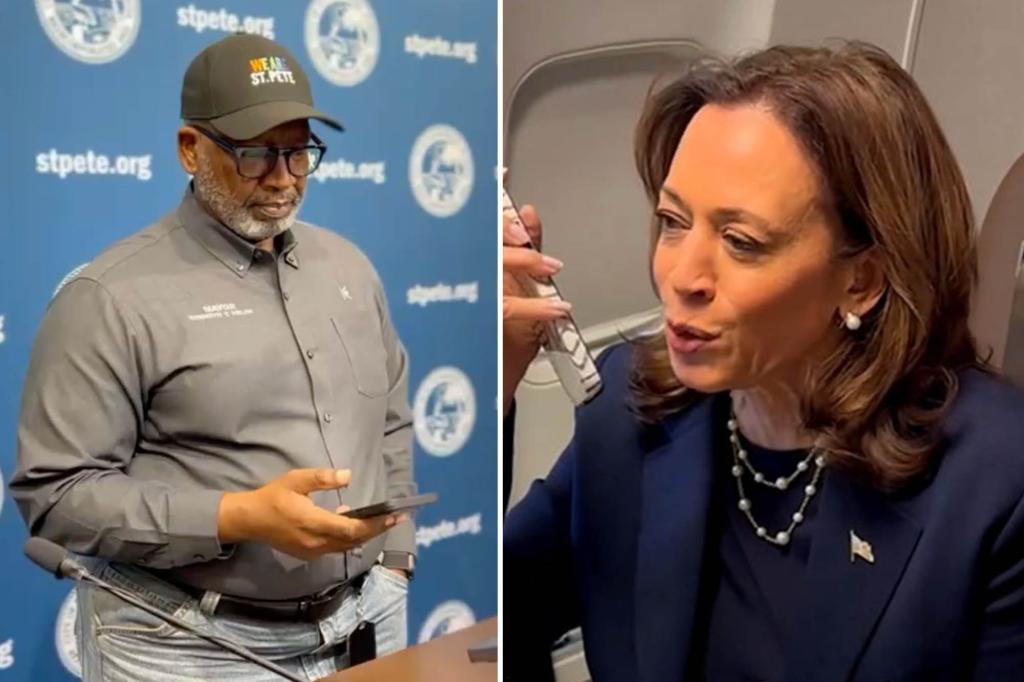Vice President Kamala Harris faced criticism after posting a video on social media showing a phone call with the mayor of St. Petersburg, Florida, as Hurricane Milton approached the Gulf Coast. The video had been edited to remove portions where Harris described herself as a “devout public servant” and expressed concerns about the pace of federal aid and bureaucracy. The full version of the call obtained by The Post revealed additional content that was cut from the posted video.
Republican politicians, including Harris’ election rival Donald Trump, criticized the federal response to Hurricane Milton, particularly in western North Carolina where local officials reported delays in receiving assistance. The edited video also removed Harris coaching Mayor Ken Welch to maintain a positive demeanor in the face of potential calamity, as federal officials feared the storm would be significant. These editing decisions were made as Harris sought to demonstrate her commitment to aiding with the federal response to severe storms.
The edited video tweeted by Harris received over 2.4 million views and was part of her efforts to show her involvement in responding to natural disasters, following a refusal from Florida Governor Ron DeSantis to take her call. DeSantis accused Harris of not showing interest in hurricanes previously and suggested her actions were driven by political motives rather than genuine concern. Ultimately, Hurricane Milton caused less damage than predicted, despite initial fears of severe impacts to the region.
These editing controversies are not the first involving Harris, as CBS News’ “60 Minutes” had previously been criticized for editing her interview remarks for broadcast in a way that Republicans believed made her responses appear more thought-out. Both Democratic and Republican officials have used video editing as a tool to shape public perception and narratives about their actions and responses to various events. It remains to be seen how the edited content shared by Harris will impact public opinion and how future controversies involving edited videos may unfold.
While Harris’ team did not provide immediate comment on the editing decisions made in the video, these events underscore the challenges faced by politicians in managing public perception and communication through social media and other platforms. The use of edited videos in political messaging can be a double-edged sword, as they can help convey a desired narrative but also invite scrutiny and criticism if the editing choices are perceived as misleading or manipulative. As political campaigns continue to rely on digital media for outreach and messaging, the role of video editing in shaping public opinion is likely to remain a topic of discussion and debate in the future.















